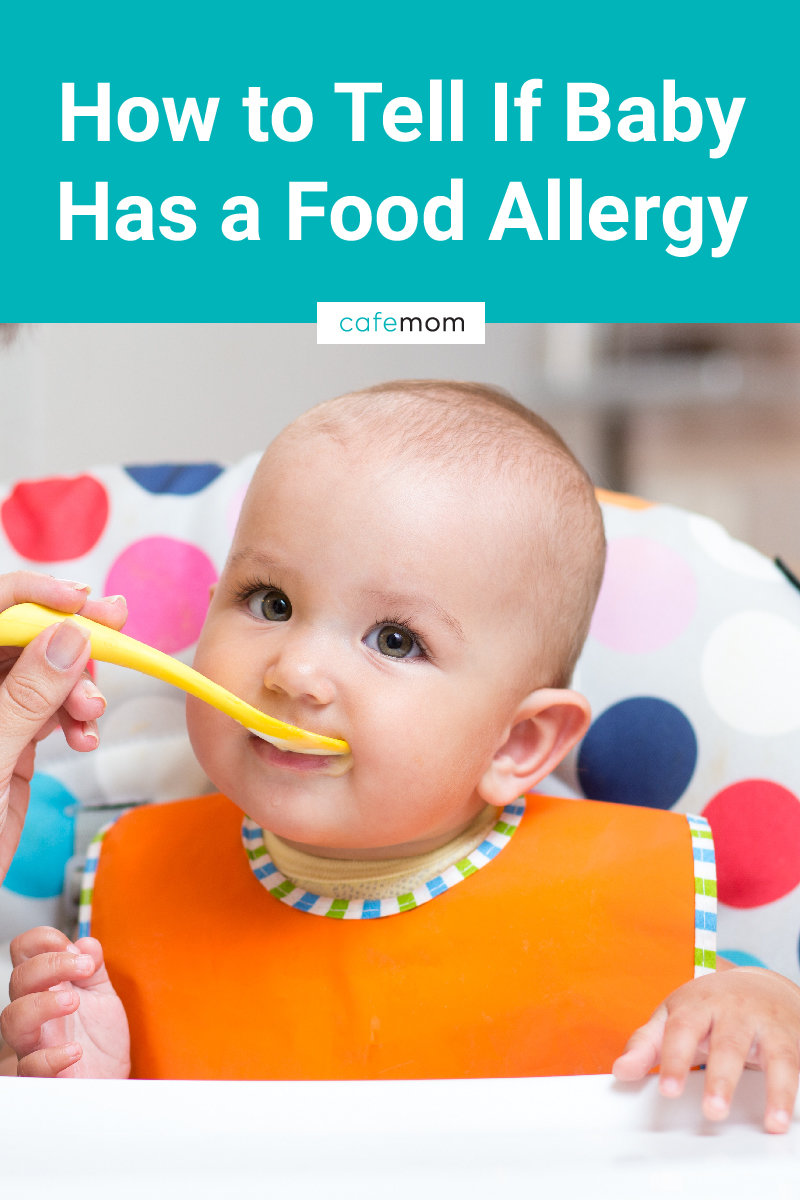As you introduce new foods, you might find yourself worried your baby could be allergic to one of them. Could you miss an important sign? Here are some of the most common food allergy symptoms according to a pediatrician. Plus, moms weigh in on the reactions that helped them know their baby had an allergy.
Keep a Close Eye When Introducing New Foods
"There are a few different signs [of] food allergy or intolerance. A lot of kids get localized redness around the mouth or hives. If they have eczema, you’ll see a worsening in it right around a time a new food is introduced.
"Sometimes these reactions are really transient. My son had redness with apples and then we waited a few months to give them to him again, and he was fine.
"There's another type of food allergy I'm seeing more than I did in the past. It's called food protein enterocolitis syndrome — it's where they have profuse vomiting after eating a certain food. It can happen about 20 to 30 minutes after eating it. If you find your baby projectile vomiting after eating a certain food, it's something to bring up with the doctor. I've seen it lately with oatmeal and avocado.
"Recommendations with introducing highly allergenic foods have changed, and it's actually recommended parents start introducing them earlier — at the 6-month mark even, after the baby's had other things — to see if they tolerate it and then keep as regular staple in their diet.
"If you notice a reaction in your baby, certainly avoid the food and then talk to the pediatrician. Depending on the degree of severity of the reaction, the pediatrician may tell you to try the food again in a few months or carry EpiPen or refer your child to a pediatric allergist." — Lauren Levine, MD, pediatrician at ColumbiaDoctors and assistant clinical professor of pediatrics at Columbia University Medical Center, New York, NY
Rash That's All Over or Just in One Spot
"At 6 weeks when I weaned my son and started regular formula, he had a prickly rash from head to toes, so we changed to a special formula. Then when we introduced him to finger foods, I gave him a peanut butter English muffin. He missed his mouth and smeared it on his cheek. By the time I walked 15 steps to get a rag to wipe him, he was welted everywhere the peanut butter touched. I talked to the pediatrician immediately and knew we were up against an allergy."
Repeated Reaction to the Same Food
"At 6 months old, I introduced blueberries to my son's diet. He broke out in a rash. We took him to his pediatrician and there wasn't another explanation for the rash. We avoided giving him blueberries until the rash cleared; we tried again and the rash returned. We now avoid anything with berries."
Appearance of Eczema
"Severe eczema. The day it clicked was the day my 18-month-old got into the fridge, broke an egg, and got raw egg on his face! The redness and swelling started immediately. My husband is a physician's assistant and noticed right away; he gave him Benadryl."
Vomiting
"I gave my 10-month-old daughter scrambled eggs for the first time. I put her down for a nap but heard her coughing and found that she had vomited. I also noticed swelling of her face. My father-in-law was a doctor and he immediately came over and gave her something. We took her to the hospital and found out that she was allergic to eggs. This is a common allergy among young children but she did outgrow it and eats eggs all the time now."
Anaphylaxis
"We tried apricots with my son. (I was scared because I am allergic to them.) The first bite was okay and then the second bite he started coughing and turning red. We had to take him to the ER for a shot."
Pin It!

Add this graphic to your Pinterest boards as your guide on how to tell if your baby has a food allergy.




